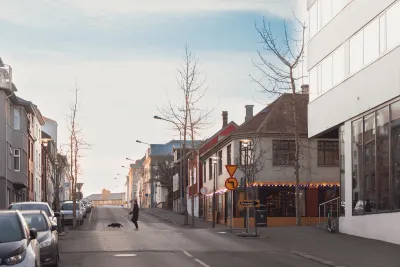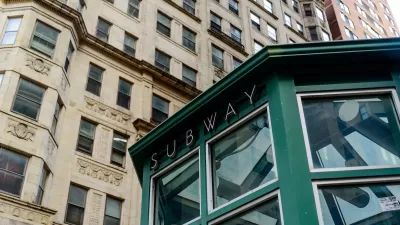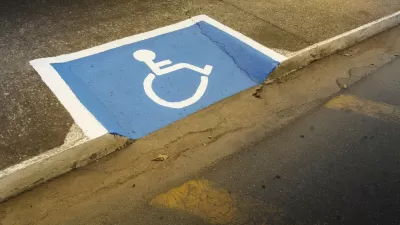Cities around the country installed over 1,700 wheelchair ramps in the last five years, thanks in part to one man’s initiative.

A small organization that began in Reykjavík, Iceland has grown into a veritable movement, installing almost 2,000 wheelchair ramps in public spaces all over the country where accessibility was an issue. As Margaret Andersen explains in Fast Company, “In many older cities around the world, accessibility standards are inconsistent, and the push to retrofit historic areas is often delayed or deprioritized in favor of architectural preservation.”
The project, called Ramp Up Iceland, designs ramps individualized to each location that work with existing materials and aesthetics. “In many cases, passersby wouldn’t even notice modifications to the historic buildings because the ramps are intentional design choices built into the urban environment.” The project was initially started and funded by Haraldur “Halli” Thorleifsson, a tech entrepreneur who uses a wheelchair, but has grown into a partnership with local governments and other groups.
A study conducted in the United States, where federal law technically requires accessibility in all public spaces, found that 60 percent of people with a disability were unable to complete a necessary task because they couldn’t access a building, and sidewalks and transit facilities remain inaccessible in many U.S. cities.
FULL STORY: Iceland built 1,756 wheelchair ramps in the past 4 years. Why can’t other countries do that?

Planetizen Federal Action Tracker
A weekly monitor of how Trump’s orders and actions are impacting planners and planning in America.

Congressman Proposes Bill to Rename DC Metro “Trump Train”
The Make Autorail Great Again Act would withhold federal funding to the system until the Washington Metropolitan Area Transit Authority (WMATA), rebrands as the Washington Metropolitan Authority for Greater Access (WMAGA).

DARTSpace Platform Streamlines Dallas TOD Application Process
The Dallas transit agency hopes a shorter permitting timeline will boost transit-oriented development around rail stations.

Renters Now Outnumber Homeowners in Over 200 US Suburbs
High housing costs in city centers and the new-found flexibility offered by remote work are pushing more renters to suburban areas.

The Tiny, Adorable $7,000 Car Turning Japan Onto EVs
The single seat Mibot charges from a regular plug as quickly as an iPad, and is about half the price of an average EV.

Supreme Court Ruling in Pipeline Case Guts Federal Environmental Law
The decision limits the scope of a federal law that mandates extensive environmental impact reviews of energy, infrastructure, and transportation projects.
Urban Design for Planners 1: Software Tools
This six-course series explores essential urban design concepts using open source software and equips planners with the tools they need to participate fully in the urban design process.
Planning for Universal Design
Learn the tools for implementing Universal Design in planning regulations.
Municipality of Princeton
Roanoke Valley-Alleghany Regional Commission
City of Mt Shasta
City of Camden Redevelopment Agency
City of Astoria
Transportation Research & Education Center (TREC) at Portland State University
US High Speed Rail Association
City of Camden Redevelopment Agency
Municipality of Princeton (NJ)





























